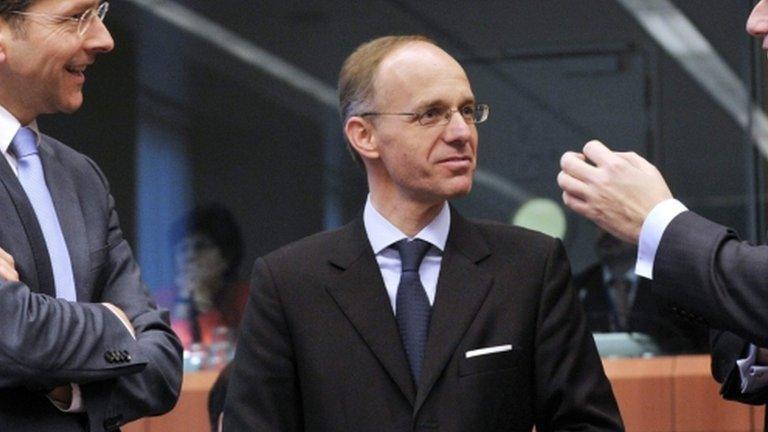Juncker tax break claims: EU Commission chief issues denial
- Published
Jean-Claude Juncker says he is "politically responsible for what happened"
European Commission President Jean Claude Juncker has denied allegations he encouraged tax avoidance when he was Luxembourg's prime minister.
He also insisted there was no conflict of interest in his position while the EU looked at his country's tax deals.
Mr Juncker has come under pressure over claims that some 340 global companies were granted deals to help them avoid tax during his 18 years in office.
He took over as head of the Commission at the start of November.
Within days he was confronted with a report by investigative journalists, external that alleged that companies such as Pepsi and Ikea had made "sweetheart" deals with his country's government to save billions in tax in other countries.
Although Mr Juncker, 59, made no comment at the time, incumbent Prime Minister Xavier Bettel was quoted as saying all deals abided by international tax rules.
The Commission president broke his silence on Wednesday, repeating Mr Bettel's message during an unexpected appearance before reporters in Brussels.
"Everything that has been done has been in compliance with national legislation and international rules that apply in this matter," he said.
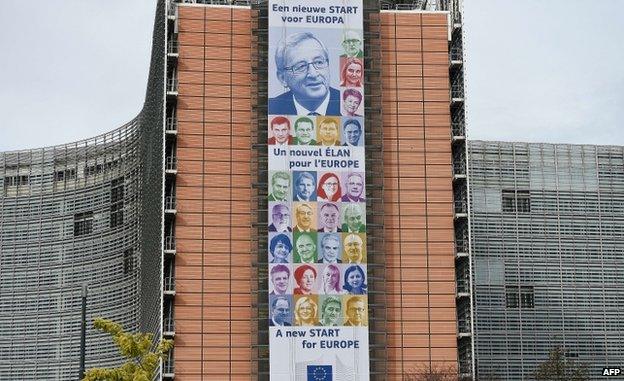
Mr Juncker's new Commission started work this month
He said that he was "politically responsible for what happened in each and every corner and quarter of that country" and if concrete tax measures had led to non-taxation "then I would regret that".
Luxembourg, Malta and Ireland are already being investigated as part of an EU crackdown on multinational corporations but the International Consortium of Investigative Journalists' report last week said that companies appeared to have "channelled hundreds of billions of dollars through Luxembourg and saved billions of dollars in taxes".
In some cases, companies enjoyed effective tax rates of just 1% on profits "shuffled into Luxembourg", it said.
Mr Juncker was finance minister before serving as PM from 1995-2013. He told reporters that "there was no conflict of interest" in his new role as head of the Commission.
When asked whether he was still suitable for the job, he retorted: "I'm as suitable as you are."
Under his tenure, the Commission would fight tax evasion and fiscal fraud and there was "nothing in my past indicating that my ambition was to organise tax evasion in Europe", he said.
He blamed "this state of affairs" on the different tax standards across the EU. If member states sometimes had "diametrically opposed" tax systems, then it could lead to results "not in line with ethical and moral standards".
The revelations, which will be discussed later at the European Parliament, are to be investigated by Competition Commissioner Margrethe Vestager. Mr Juncker said he would not discuss the case with her, to avoid a conflict of interest.

Juncker tries to silence critics, by Damian Grammaticas, Brussels
The fact Jean-Claude Juncker answered his critics today took many by surprise. But it is a sign that he knows how damaging this issue could be for him and for Europe.
How can he credibly head the European Commission when it is now investigating some of the deals done when he was running Luxembourg?
His answers are that there is no conflict of interest today, that he is committed to fighting tax evasion, that he was not the architect of what happened in Luxembourg, that nothing illegal was done and that the problem lies just as much with the fact other countries had high taxes.
The trouble for Mr Juncker is that the whole issue plays into the general feeling of disillusion and distrust of EU leaders that has led to the rise of sceptical parties and politicians across Europe.

- Published12 November 2014
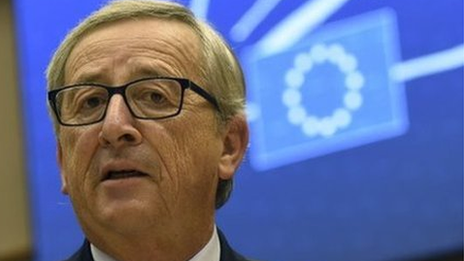
- Published6 November 2014
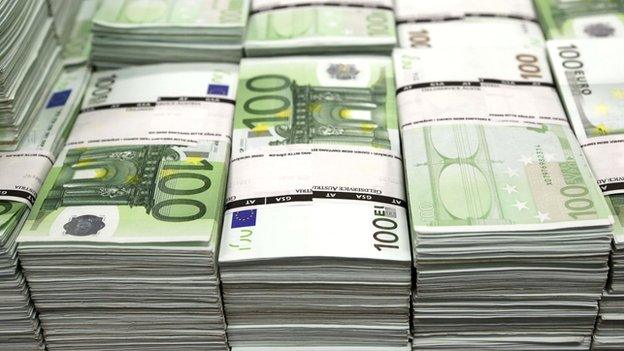
- Published15 July 2014
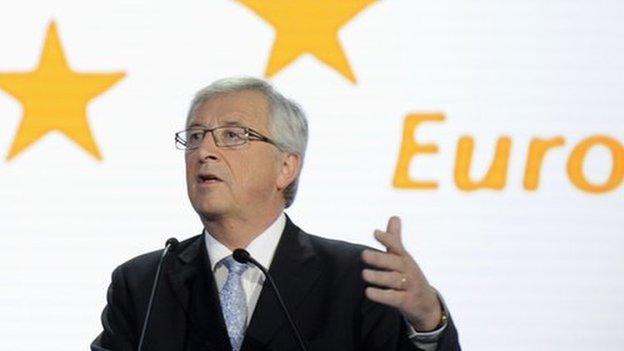
- Published15 July 2014
- Published7 April 2013
